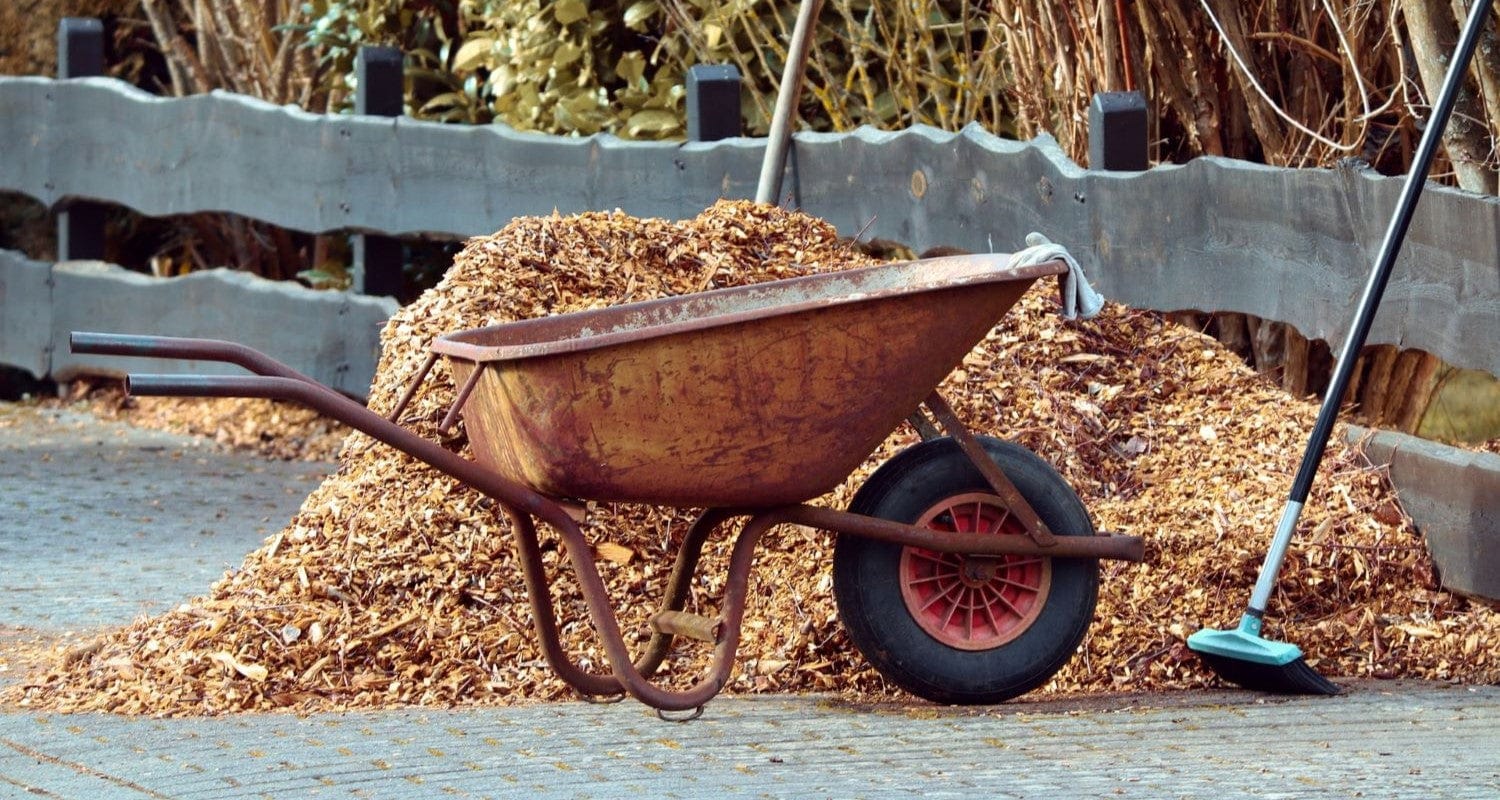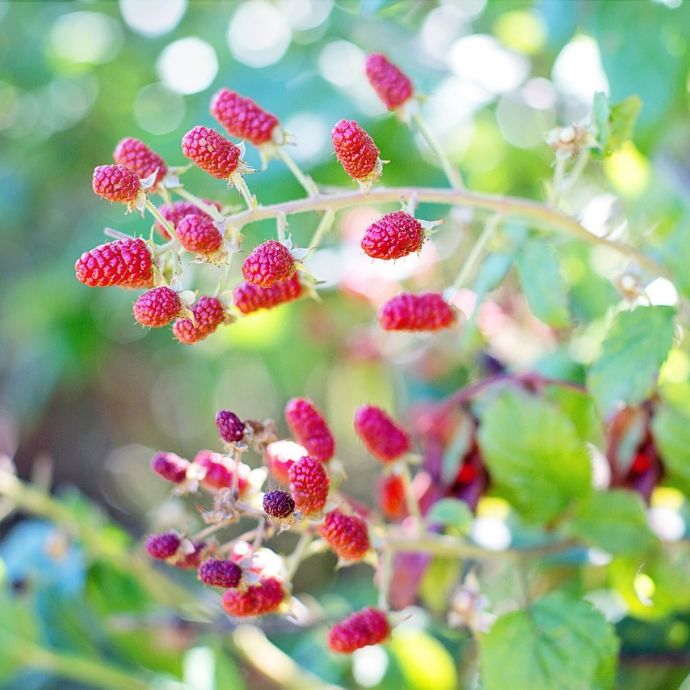Advice & Inspiration
What Is Mulch? A Gardener's Guide to Mulching

If you read any plant growing guide, there’s a good chance it’ll tell you to mulch your plants - but what the heck does that mean? And do you dare google it? We’ve put together this simple guide with the help of our expert growers, so you don’t have to. It’ll tell you everything you need to know about mulching, what it can do for your plants and how to get started.
Jump to:
What is mulch?
Mulch is simply a covering of organic material, like compost or bark chips, that’s laid around the base of plants to protect them and improve their health. It acts as a barrier to keep out weeds, locking moisture, warmth and nutrients into the soil and preventing soil erosion around plants, which could destabilise them and expose their roots to infection. It’s a beautifully simple - and relatively cheap - thing you can do to bring a lot of benefits to your garden. Some mulches, including manure and compost, actively add nutrients to the soil and others, like leaves, grass clippings and bark, provide a habitat for beneficial insects as they rot down.
What is mulch made of?
There are several different kinds of mulch, each one suitable for a different purpose. Here’s our at-a-glance guide to the best.
Bark chip mulch
Best for: Trees, shrubs and established plants which won’t need any digging for the foreseeable; walkways between vegetable beds.
Pros: Looks really natural, like a forest floor. Wildlife friendly: it creates a habitat for insect life and beneficial fungi. Reduces pest issues, keeps water in the soil, breaks down organically. Killer at keeping down weeds, relatively light to transport and lift.
Cons: Can’t plant seeds through it, relatively slow release of nutrients.
Get yours: Buy it or make friends with someone who owns a woodchipper.

Compost mulch
Best for: Everywhere in your garden.
Pros: Raises soil temperature and keeps the soil moist, won’t blow away.
Cons: Expensive if you don’t have a compost bin; not the prettiest.
Get yours: Buy it or make your own.
Well rotted manure
Best for: Plants that need a lot of nitrogen, like beans, peas and brassicas. Don’t use this on plants like potatoes or root veg, that don’t like high nitrogen levels.
Pros: Very rich in nutrients, works quicker than most mulches to improve the soil.
Cons: Strong smelling.
Get yours: Buy some or make friends with a horse person. Make sure it’s rotted down for at least six months, or the high levels of nitrogen may scorch your plants.
Grass mulch
Best for: Individual plants, areas you don’t use for seating or entertaining; lawns.
Pros: Very cheap and easily available, suppresses weeds and locks in water.
Cons: Doesn’t warm the soil, can blow away easily, not great for hayfever sufferers, smells bad and looks like slime when it decomposes.
Get yours: Mow your lawn or raid your neighbour’s green bin (with their permission).
Straw mulch
Best for: Strawberries, squashes, melons, cucumbers and courgettes (it keeps them off the wet ground); potatoes (does a great job of keeping the sun off them).
Pros: Long lasting (decomposes slowly).
Cons: Might be treated with pesticides - it’s a good idea to check before use.
Get yours: Buy from garden centres and pet shops or scrounge a bale from a hipster wedding.

Leaf mulch
Best for: Trees and shrubs (whole leaves); everything (leaf mould).
Pros: Free! Attracts worms, which aerate your soil.
Cons: Can look untidy.
Get yours: Rake up your autumn leaves or raid the neighbours’ green bin (with their permission) then pack them all into a bin bag and give them some water. Poke some small holes in the bag to allow excess moisture to escape and leave it to rot down. You can speed up the process by breaking up the leaves first, and shaking the bag occasionally. Leave for a few months to a year, then spread on your garden.
Pine needles
Best for: Acid loving plants like blueberries, azaleas and rhododendrons as they lower the pH level of the soil slightly.
Pros: Free if you have a pine tree, look natural, lightweight and easy to spread.
Cons: It’s often thought that pine needles make the soil too acidic but this isn’t really the case - you’d have to dig them in for that to happen. They are easily blown away though - mix them with compost if this is likely to be a problem in your garden.
Get yours: Shovel them up from the base of pine trees.

How to mulch your garden
There are two times of year when you should be cracking out the mulch: spring and autumn. In spring, the aim is to add nutrients to the newly growing plants while suppressing the weeds as they start to emerge. In autumn, your mulch will stop soil erosion and protect your plants’ roots from being damaged by bad weather.
How much mulch?
It’s not an exact science, but as a guide, a layer 5-8cm deep will do the job (if you have bulbs planted in that area of the garden, don’t exceed 5cm as it’s difficult for them to push up through anything thicker).
Before you start, weed the area around the plant, make sure the ground is level and give it a water. If there’s an old layer of mulch, remove this before applying a new one, or if it’s decomposed, work it into the soil with a garden fork.
Lay your mulch around the plant’s base by hand or with a spade or trowel, being careful not to bury young leaves and stems, then even it out with a rake.
Replace your mulch once or twice a year to keep the nutrient content high.

When mulch goes wrong
Weed suppressing fabric or black plastic is often regarded as a kind of mulch, but I wouldn’t recommend it as there are far more economical, sustainable and effective methods available. The previous owners of my house had this stuff and it was a nightmare to remove - soil compacted to clay underneath it, suspicious rodent-sized tunnels everywhere (but no evidence of worm activity) and as it was old and rotten, the weeds came through it anyway. Avoid.



















